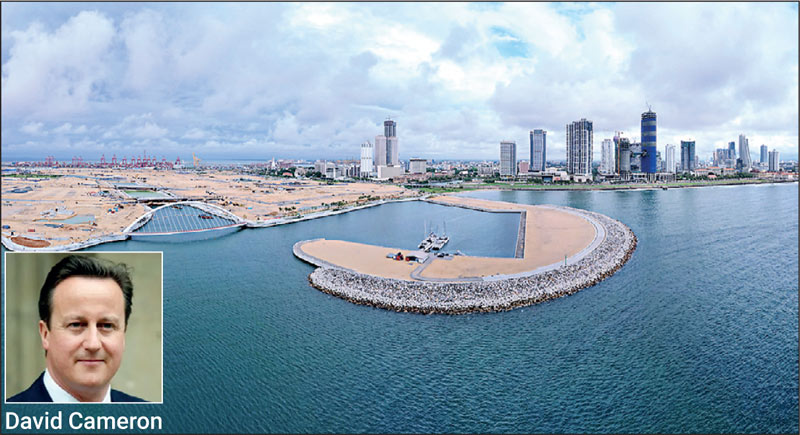Thomas Caygill, Nottingham Trent University
In a surprise move, Rishi Sunak, the UK’s prime minister, has appointed former prime minister David Cameron as foreign secretary. Cameron, who resigned immediately after losing the 2016 Brexit referendum, has been almost entirely absent from the political scene ever since.
It’s rare these days for a prime minister to appoint someone who is not a sitting member of the House of Commons as a cabinet level minister in their government but Sunak certainly can do it. The prime minister has what we call the power of patronage.
What we mean by this is that there are a number of public roles for which the prime minister gets to decide who gets the job. Those powers of patronage include appointing members of the cabinet as well as other junior ministers to serve in government.
It is only a constitutional convention, rather than a rule, that government ministers be a member of either house of parliament. However, it is a convention that has been strongly abided by.
This convention revolves around the constitutional principle of responsible government where the executive is accountable to parliament. That’s why Cameron has been granted a life peerage to sit in the House of Lords, the upper house of parliament.
Making Lord Cameron the new foreign secretary is, from a historical and constitutional position, not unusual or forbidden. Under the government of Gordon Brown, both Lord Mandelson and Lord Adonis served in the cabinet, for example.
How quickly does this all happen?
While there are often set times when prime ministers appoint peers to the House of Lords, such as resignation honours, they can appoint anyone at any time. That means Cameron is now already a peer.
He will sit on the Conservative benches in the House of Lords for life – regardless of how long he spends in the role as foreign secretary.
This conferring of a peerage does mean he will need to be formally introduced into the House of Lords but this doesn’t take long to arrange. There is nothing to prevent Cameron from taking up the role of foreign secretary immediately, which explains why he has already been photographed at the Foreign, Commonwealth and Development Office.
Is it OK to appoint a minister in this way?
There isn’t a problem with Cameron’s appointment from the perspective of the constitution. It is all above board.
However some people will (legitimately) question whether the British government should be continuing to appoint peers to cabinet level jobs in the 21st century, given that debates around its democratic legitimacy, as an appointed rather than elected chamber, have been going on for decades already.
It’s worth noting that Cameron had a preference for appointing his cabinet ministers from the House of Commons when he was in charge.
And while the government is accountable to parliament as a whole, generally speaking we are talking about being accountable to the House of Commons, which is the elected house. MPs are likely to be annoyed that a senior member of the cabinet is not a member of their house.
Lindsay Hoyle, the speaker of the House of Commons, has already expressed concern about how the foreign secretary will be held to account by the House of Commons. While there are mechanisms available to hold the new foreign secretary to account, MPs are likely to need pacifying.
As a member of the House of Lords, Cameron will not be able to take part in the monthly Foreign Office questions in the House of Commons. He will not be able to answer urgent questions in the House of Commons or take part in their debates either.
Nor will he be able to deliver major foreign policy statements in the House of Commons. Junior ministers in the department will have to face MPs instead.
He can answer questions and take part in debates in the House of Lords and will be held to account by his fellow peers but it is a different political arena to the House of Commons.
There is precedence for cabinet level ministers in the House of Lords to appear there regularly. In 2009, House of Lords procedures were changed to allow cabinet ministers to answer questions on their departmental brief once a month for 20 minutes, and I am sure Lord Cameron will deliver statements on foreign affairs.
But, again, MPs cannot take part in this scrutiny. This is likely to annoy many, given the major foreign policy issues the country is facing at the moment.
When was the last time a great office of state was held by a peer?
While the appointment of cabinet ministers from the House of Lords is not unusual in post-war history, it has been some time since such a senior member of the government (a holder of one of the great offices of state) has come from the House of Lords.
The last member of the House of Lords to serve in one of the great offices of state was Lord Carrington, who was Margaret Thatcher’s foreign secretary between 1979 and 1982.
It also isn’t unheard of for former prime ministers to return to cabinet. Alex Douglas Home, who was until recently the shortest serving prime minister in post-war history, was appointed as foreign secretary by prime minister Ted Heath, serving from 1970 to 1974.![]()
Thomas Caygill, Senior Lecturer in Politics, Nottingham Trent University
This article is republished from The Conversation under a Creative Commons license. Read the original article.

